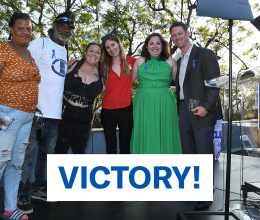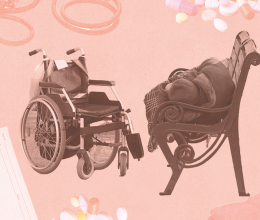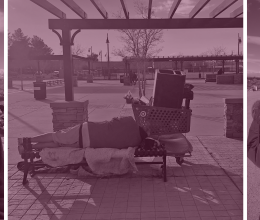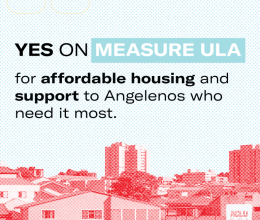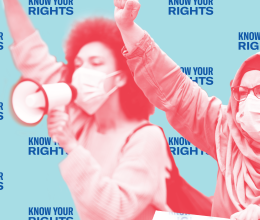
March 24, 2020
Governor Gavin Newsom
1303 10th Street, Suite 1173
Sacramento, CA 95814
Re: Homelessness and COVID-19
Dear Governor Newsom:
We are a coalition of organizations whose advocacy efforts include housing justice and the rights of unhoused people. We write to ask that you issue an Executive Order clarifying that Executive Order N-33-20 does not require people who are currently unhoused in California to find shelter indoors; that the provision of outreach and support to unhoused people is an essential service exempted from Executive Order N-33-20; and that a law enforcement approach of sweeping or dismantling homeless encampments during the State of Emergency relating to COVID-19 that you declared on March 4th is inconsistent with the public health safety practices that Executive Order N-33-20 seeks to implement.
Shelter-In-Place
When six counties in the Bay Area issued virtually identical shelter-in-place orders on March 16th, the orders excluded individuals experiencing homelessness from the requirement to shelter in their residences. The orders encouraged homeless individuals to obtain shelter and urged government agencies to provide shelter for those individuals.
Your subsequent Executive Order N-33-20, the statewide shelter-in-place order, does not contain any clarification regarding how people who are unhoused would comply with the order that “all individuals living in the State of California... stay home or at their place of residence... .” Of course, sheltering indoors is impossible for Californians who are living outside. The homes of unhoused people are often tents or vehicles, which are outlawed forms of shelter in many jurisdictions across the State, notwithstanding the lack of safe indoor alternatives. We therefore ask that you clarify in a new Executive Order that the shelter-in-place requirements in Executive Order N-33-20 do not apply to unhoused people, and that local governments must not use the statewide order as a justification to punish unhoused individuals for their inability to shelter indoors, confiscate their belongings, or require them to move to a shelter.
Aiding the Unhoused as an Essential Service
The Governor’s Office should also make clear in a new Executive Order that people providing outreach and essential services, such as food, medication, wellness checks, and other support, to homeless individuals are engaging in essential activities and are permitted to continue working under Executive Order N-33-20.
Compliance with the CDC Interim Guidance on Encampment Sweeps and Seizure of Survival Gear
In the absence of any explicit statement from the Governor’s Office regarding the applicability of Executive Order N-33-20 to unhoused people, we have heard from across the State disturbing accounts of local governments that are continuing to conduct “sweeps” of homeless encampments, confiscating property, and directing people to disband encampments and “move along” under threat of arrest.
These outcomes are directly contrary to the Centers for Disease Control and Prevention’s Interim Guidance for Responding to Coronavirus Disease 2019 Among People Experiencing Unsheltered Homelessness (CDC Interim Guidance), a copy of which is attached. The CDC declares that dislocating existing encampments during this public health emergency endangers the entire community. The CDC urges governments not to clear encampments during community spread of COVID-19. Sweeps cause people to disperse throughout the community, elevating the risk of disease being spread to those new areas. Sweeps furthermore sever connections with service providers by displacing people to areas where they cannot be found or from which they cannot access needed services.
Likewise, seizure of tents, tarps, medications, and other survival gear makes homeless individuals, who are already five times more likely than members of the general public to be hospitalized, even more vulnerable to hospitalization due to COVID-19. Instead of clearing encampments, the CDC advises governments to instruct people staying in encampments to set up sleeping areas with at least twelve feet of space per person and to provide hygienic services such as portable latrines and handwashing stations.
The most critical prevention measure in the CDC Interim Guidance is physical distancing, a measure that is directly undermined by the forced relocation of people from encampments into congregate shelters.1 The conditions of traditional homeless shelters make social distancing and isolation impossible. A single case of coronavirus among shelter residents could rapidly multiply, infecting a large number of residents and staff. Congregate shelters can be especially problematic for people experiencing homelessness who have disabilities, such as being immunocompromised. Such people have a much higher risk of contracting COVID-19 in a congregate shelter and may be safer living unsheltered in their own tent.
We appreciate the efforts shown at state and local levels to procure indoor isolation housing for unhoused people, both to decrease the risk of exposure for people who do not have COVID-19 and, for those who do acquire COVID-19, to enable self-isolation to avoid transmitting the virus to others. Consistent with the CDC Interim Guidance, we strongly support the provision of adequate isolation housing for anyone who needs it, but we oppose any policies that would force unhoused people into congregate shelters, where their risk of infection will be exponentially increased.
We therefore ask that you immediately issue a clarifying Executive Order that provides:
- Executive Order N-33-20’s requirement that California residents stay in their homes does not apply to unhoused people;
- People who provide outreach and other essential services to unhoused individuals are performing an essential activity exempted by Executive Order N-33-20; and
- Local jurisdictions must comply with the CDC Interim Guidance for the duration of the COVID-19 State of Emergency, and must (a) halt encampment sweeps and property confiscation including tents, and (b) provide outdoor encampments with CDC-recommended hand-washing and other sanitation facilities.
We appreciate your prompt attention to these critical issues.
Sincerely,
1. ACLU of California
2. Disability Rights Advocates
3. Disability Rights Education and Defense Fund
4. Lawyers’ Committee for Civil Rights of the San Francisco Bay Area
5. National Coalition for the Homeless
6. National Housing Law Project
7. National Law Center on Homelessness and Poverty
8. Public Advocates
9. Public Counsel
10. Public Interest Law Project
11. Western Center on Law and Poverty
12. ANAKABYAN
13. Anti-Eviction Mapping Project
14. Anti-Police Terror Project
15. Any Positive Change Inc.
16. Asian American Drug Abuse Program
17. Bay Area Legal Aid
18. Berkeley Free Clinic
19. Bill Wilson Center
20. Center for Health & Prevention at the Community Action Partnership of San Luis Obispo
21. Centro Legal de la Raza
22. Coalition on Homelessness, San Francisco
23. Community Clinic Association of Los Angeles County
24. Community Forward SF
25. Community Housing Partnership
26. Community Legal Services in East Palo Alto
27. Compass Family Services
28. Desert AIDS Project
29. Disability Rights California
30. Disability Services and Legal Center
31. Do No Harm Coalition at University of California San Francisco
32. Drug Policy Alliance
33. East Bay Getting to Zero
34. ELDR Center
35. Eviction Defense Collaborative
36. Fair Housing Advocates of Northern California
37. Fijate Bien Program, MPact Global Action
38. Fresno Barrios Unidos
39. GLIDE
40. Gubbio Project
41. Harm Reduction Coalition of San Diego County
42. HealthRIGHT 360
43. HEART L.A.
44. Homeless Emergency Service Providers Association of San Francisco
45. Homeless Prenatal Program
46. Hospitality House
47. Inland Empire Harm Reduction
48. Jobs for Justice
49. Justice Teams Network
50. LAGAI – Queer Insurrection
51. Larkin Street
52. Law Foundation of Silicon Valley
53. Lava Mae X
54. Legal Aid of Marin
55. Legal Aid Society of San Mateo County
56. L.A. Care
57. Los Angeles Christian Health Centers
58. Los Angeles LGBT Center
59. Mental Health Advocacy Services, Inc.
60. Mental Health Association of San Francisco
61. Mission Neighborhood Health Center/Mission Neighborhood Resource Center
62. National Health Care for the Homeless Council
63. National Lawyers Guild – SF Bay Area Legislative Reform Committee
64. National Sobering Collaborative
65. Positive Women’s Network – USA
66. Public Law Center
67. Sacramento Regional Coalition to End Homelessness
68. San Francisco AIDS Foundation
69. San Francisco Hepatitis C Task Force
70. San Francisco Rising
71. San Francisco Tenants Union
72. Silicon Valley De-Bug
73. St. Anthony Foundation
74. St. James Infirmary
75. Supportive Housing Provider Network
76. Swords to Plowshares
77. Think Dignity
78. Transitions Clinic Network
79. TruEvolution
80. United Council of Human Services
81. Venice Family Clinic
82. Western Regional Advocacy Project
83. Women Organized to Respond to Life Threatening Diseases (WORLD)
cc: David Chiu, Assembly Member, Seventeenth District
Dr. Sonia Angell, State Public Health Officer and Director of the California Department of Public Health
1. The ACLU of California submitted a letter to the Director and State Public Health Officer on March 16, 2020, outlining concerns with the unacceptable risk of contagion and outbreak in homeless shelters during the COVID-19 pandemic.
